SDN List Update – September 16, 2025
TL;DR
OFAC has sanctioned two Iranian nationals for using crypto, including stablecoins like USDT on Ethereum and TRON, to move over $100 million tied to Iranian oil sales. The wallets involved have received more than $600 million overall. Scorechain updated its platform within 15 minutes of the OFAC release, assigning a critical risk score and enabling immediate monitoring for exposure.
On September 16, 2025, the U.S. Department of the Treasury’s Office of Foreign Assets Control (OFAC) announced new crypto-related sanctions, targeting two Iranian nationals: Alireza Derakhshan and Arash Estaki Alivand. These individuals operated a cryptocurrency-based financial network that facilitated money laundering to support the Islamic Revolutionary Guard Corps Qods Force (IRGC-QF) and the Iranian Ministry of Defense.
This latest OFAC update highlights the continued use of cryptocurrency in sanctions evasion and illicit finance. The designated network processed over $100 million in proceeds from Iranian oil sales using Ethereum and TRON wallets. Total inflows to the wallets exceed $600 million, suggesting wider involvement in state-backed laundering activity.
$600M in Total Inflows: Wallet Analysis
While OFAC’s public statement emphasizes oil revenue laundering, on-chain analysis of the sanctioned wallets reveals over $600 million in cumulative inflows. These wallets demonstrate sophisticated laundering strategies including:
Use of UAE-based intermediaries
On-chain layering and mixing on Ethereum and TRON
Front companies and connections to previously sanctioned entities
This reflects a broader trend of state-linked actors leveraging blockchain technology for cross-border fund movement while evading traditional banking controls.
Scorechain Response: Sanctions List Integration in Under 15 Minutes
In response to the OFAC sanctions update, Scorechain integrated the new designations into its platform within 15 minutes of the official release. The flagged individuals and wallet addresses were assigned a critical risk score (1) and marked with the "Sanction List" indicator.
Entities and addresses are now available to Scorechain users for:
On-chain exposure monitoring
Risk scoring and reporting
Transaction graph analysis
Cross-chain activity mapping
This ensures that compliance teams can respond in real time to critical threats involving sanctioned crypto wallets and high-risk jurisdictions.
Wallets Sanctioned by OFAC
Arash Estaki Alivand
Ethereum:
0xe3d35f68383732649669aa990832e017340dbca5
0x532b77b33a040587e9fd1800088225f99b8b0e8a
TRON:
TYDUutYN4YLKUPeT7TG27Yyqw6kNVLq9QZ
TRakpsE1mZjCUMNPyozR4BW2ZtJsF7ZWFN
TQ5H49Wz3K57zNHmuXVp6uLzFwitxviABs
Alireza Derakhshan
Ethereum:
0xdb2720ebad55399117ddb4c4a4afd9a4ccada8fe
TRON:
TSxAAo67VTDgKT537EVXxdogkJtk9c6ojz
All addresses have been flagged in the Scorechain platform with historical data, transaction flows and entity links fully traceable.
Links to Hezbollah and Previously Sanctioned Actors
According to OFAC, Arash Estaki Alivand had financial ties to the Al-Qatirji Company, a previously sanctioned entity involved in Syrian oil shipments. He also transacted with Tawfiq Muhammad Sa’id al-Law, a Hezbollah-linked money exchanger involved in IRGC-QF financing operations.
These connections confirm the growing intersection between crypto asset misuse and state-sponsored sanctions evasion.
Key Takeaways for Compliance Teams
Sanctioned wallets are moving across blockchains with increasing speed and scale. Ethereum and TRON are frequently used by sanctioned actors due to their access to liquid stablecoins like USDT, low transaction fees and ease of cross-border transfer. These properties make stablecoins an effective medium for laundering large volumes of funds with minimal price volatility.
Sanctions are rarely isolated. Many wallets and counterparties in new designations trace back to previously flagged entities. This creates interconnected risk across networks and jurisdictions.
Time matters. Compliance teams that rely on static lists or delayed ingestion risk missing exposure. Monitoring tools like Scorechain help teams detect and act on threats as soon as sanctions are made public.
For financial institutions, VASPs and crypto compliance teams, staying updated with OFAC sanctions involving cryptocurrency is essential to reduce exposure and stay audit-ready.
This blog is part of Scorechain's ongoing coverage of global sanctions impacting the crypto industry. For access to real-time compliance tools and monitoring solutions, explore the features inside the Scorechain platform.
Disclaimer
This content is provided for informational purposes only. It does not constitute legal, tax, financial, or investment advice. Scorechain does not accept any liability for actions taken based on this information.
Organizations should assess regulatory obligations independently and consult with appropriate advisors before making compliance or business decisions. While we aim to provide timely and accurate insights, Scorechain does not guarantee the completeness or accuracy of the data presented here.
.png)

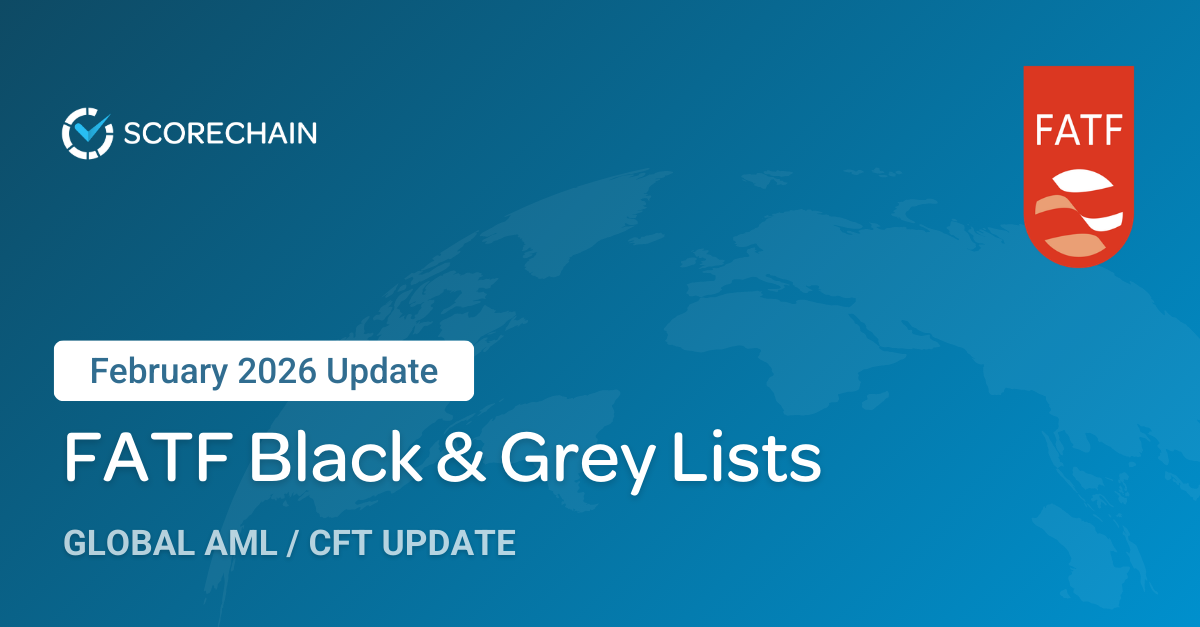
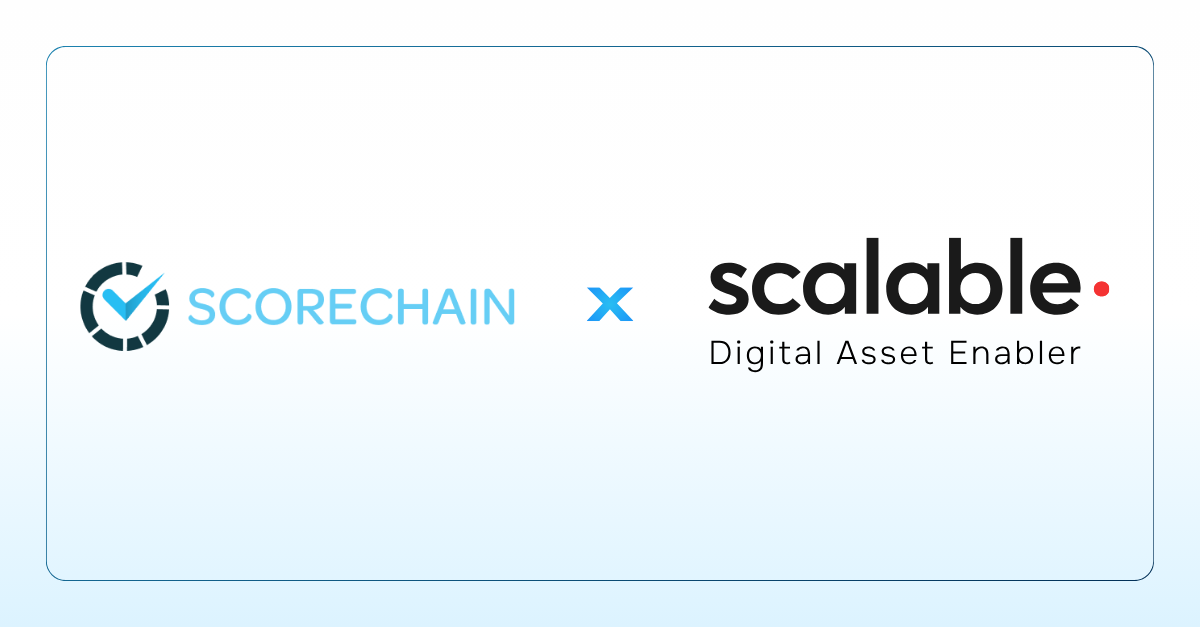
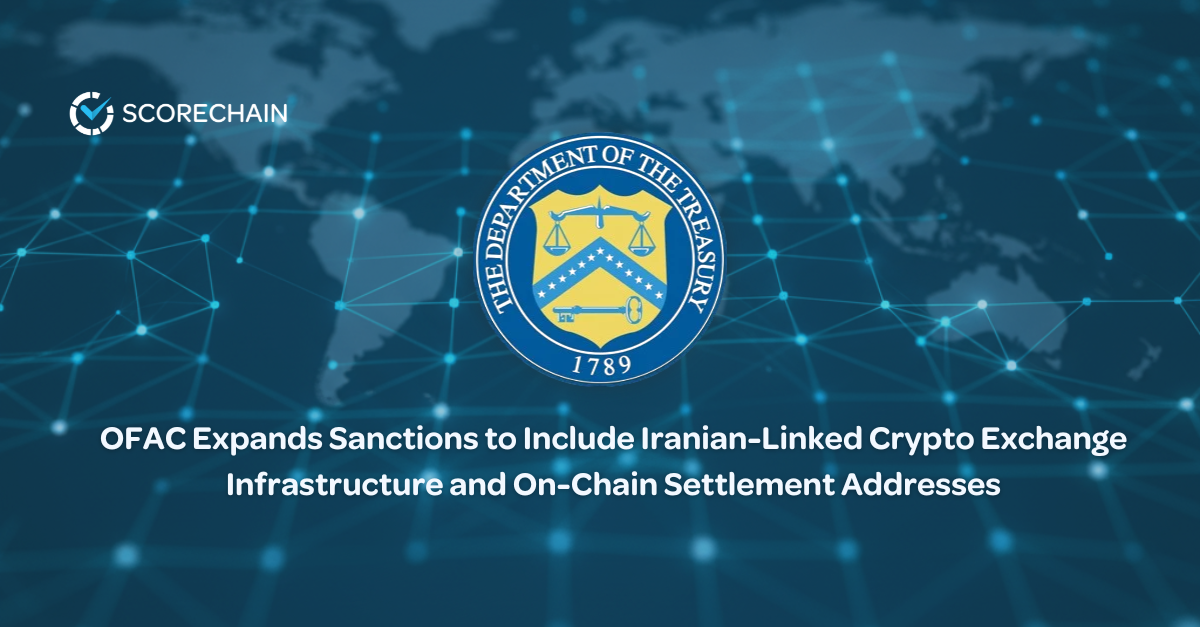
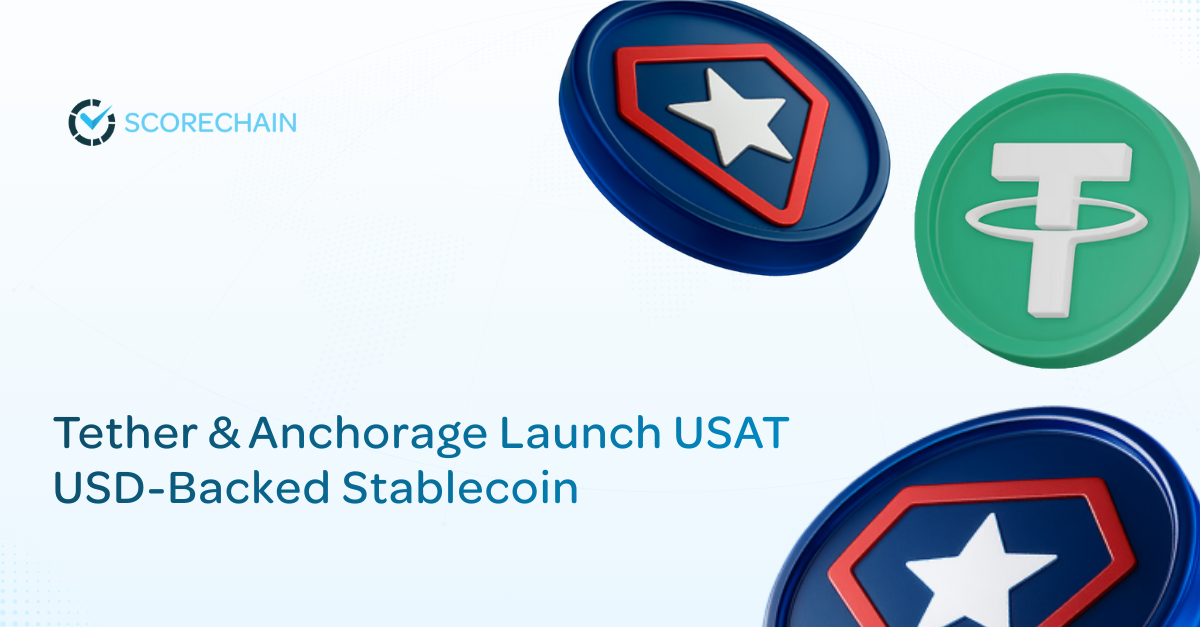
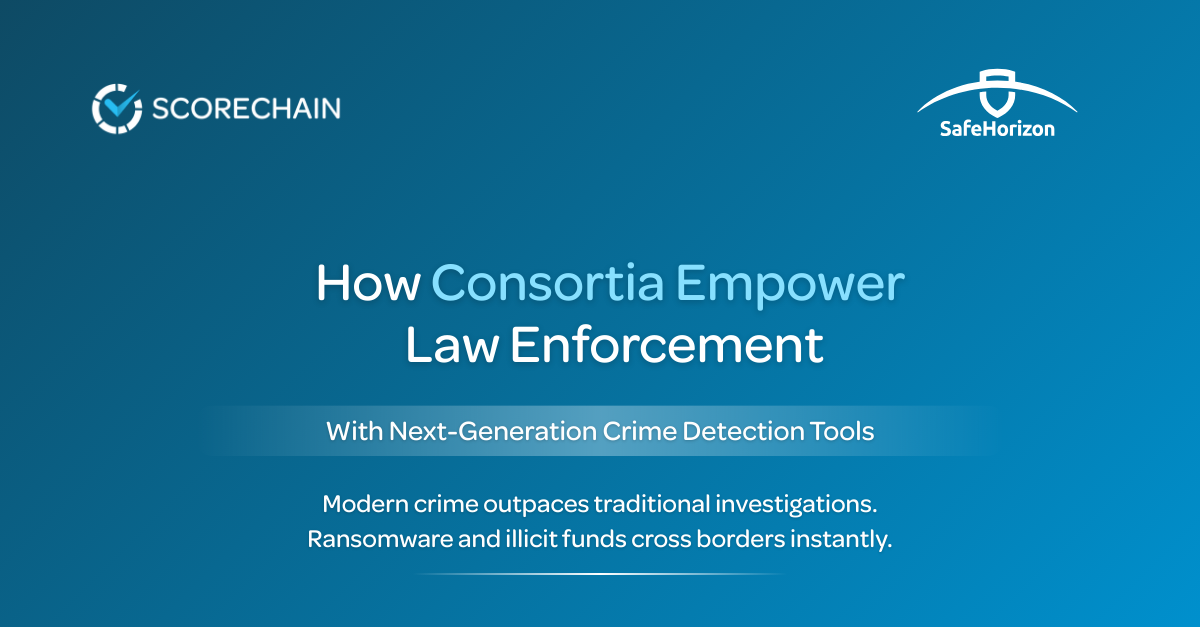
.png)












